Dubai’s laws governing the purchase of real estate by foreigners

Legislation of Dubai regulating property purchase for foreign investors
Recent years the UAE government has reformed property laws in Dubai. Due to this more and more people find out that buying residential and investment properties in the country is becoming more attractive. The Dubai real estate market underwent a significant change in the beginning of 2001. The government of Dubai has allowed foreign investors and buyers to rent apartments and villas in Dubai for a period of 99 years. In May 2002, the current ruler of Dubai, His Highness Sheikh Mohammad bin Rashid Al Maktoum made a decision to allow foreign citizens to invest in Dubai real estate as a full possession.
Dubai Property Laws
Real estate investment in Dubai is governed by a set of laws and regulations intended to protect the interests of foreign investors. The UAE Civil Code (Law No. 5 of 1985) regulates civil transactions and contains certain provisions relating to real estate. The UAE Constitution provides for the protection of private property and laws relating to property ownership are adopted separately by each Emirate in the UAE. The Emirates also have certain “free zones” that are authorized to issue their own laws and regulations.
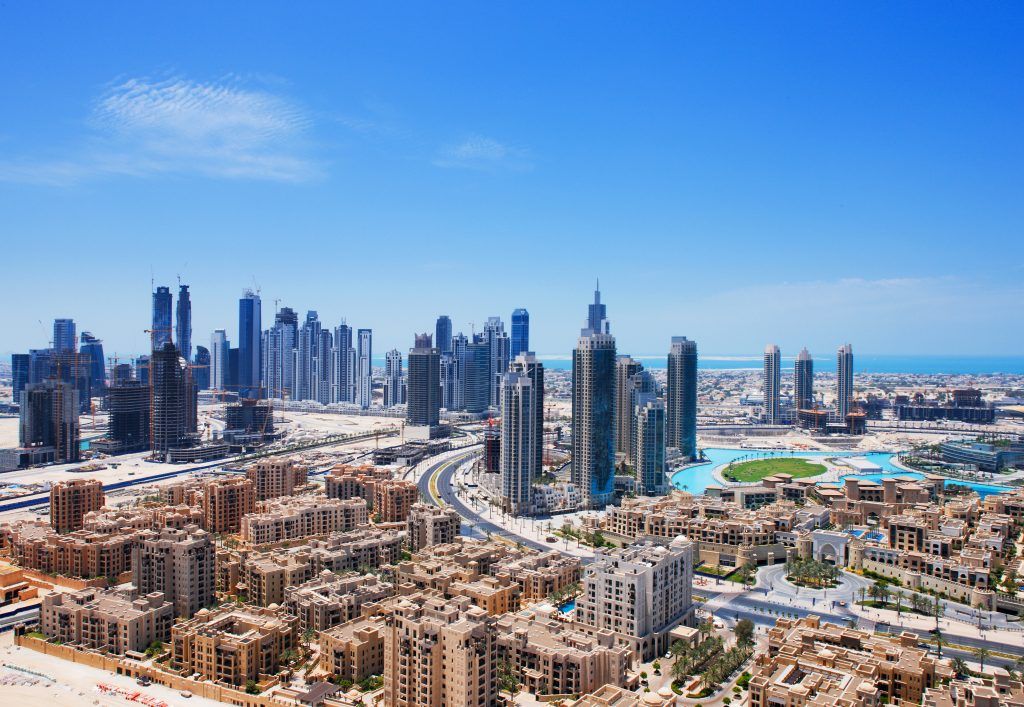
Department of Land and Property in Dubai (DLD)
The Department of Land and Property in Dubai (DLD) develops the necessary lawmaking for the development of the real estate sector in Dubai, arranging and promoting real estate investments. It was founded in may 1960 with the aim to create the most well-recognised real estate sector. Department of Land and Property searches regional and global real estate innovation through its own active sectors, which include:
<ul><li>The real estate registration trustee centres.</li></ul>
All land rights are documented and preserved with the specially created Al Taboo system. It consists of 4 subsystems: register, primary register, trust accounts and confirmation of property owners ‘ rights.
<ul><li>Real Estate Investment Management and Promotion Center. DLD aims to support national and international companies that invest in real estate and develop the environment for such investments.</li><li>Emirates Real Estate Solutions (ERES) works to find solutions for the e-real estate market based on real estate experience when registering with DLD and RERA.</li><li>Rental Disputes center (RDC). It is an online rental litigation system that provides a fully automated litigation management cycle, from online registration, audit, payment, and online archiving, allowing all interested parties to access all related documents at any time.</li></ul>
His Highness Sheikh Mohammed bin Rashid Al Maktoum, Vice President and Prime Minister of the UAE and ruler of Dubai, issued Law No. 7 (2013) defining the goals of DLD as the government body responsible for registering, organizing and promoting real estate investments in Dubai in 2013. The law was aimed to create an attractive investment environment by implementing international standards to accelerate the development and growth of this vital sector, given its important position in the local economy.
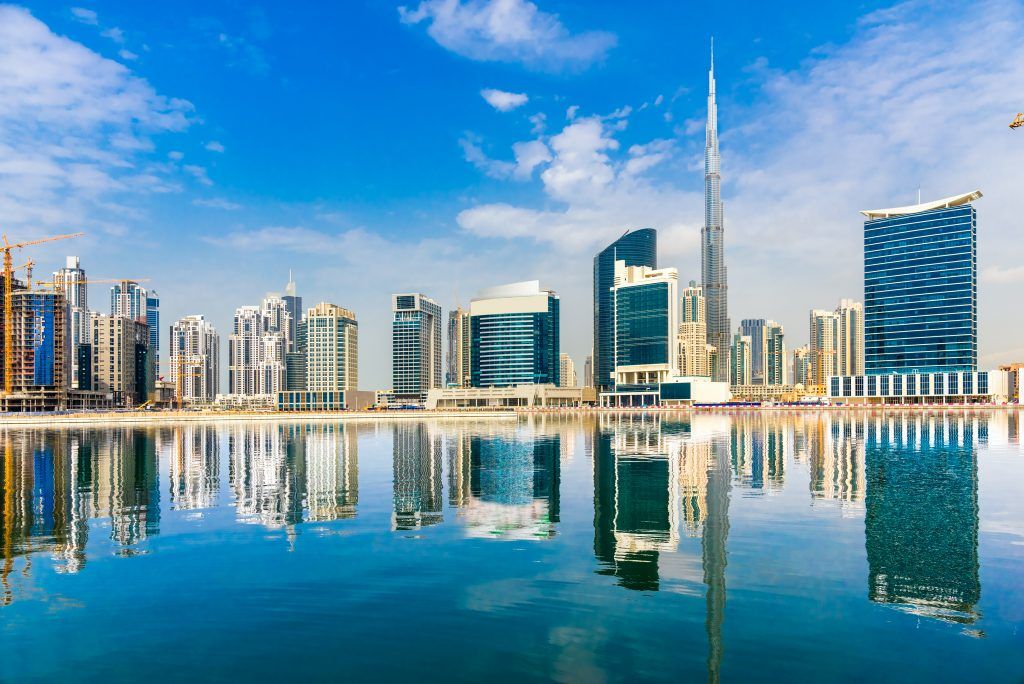
Dubai Real Estate Regulatory Agency
The Real Estate Regulatory Agency (RERA) is responsible for creating the legal principles and mechanisms governing the activities of real estate development and brokerage companies, as well as associations of property owners. In addition, it issues licenses to developers and real estate agents, as well as rules and regulations for registering the purchase and sale of real estate in Dubai. RERA monitors all development projects in its financial and technical level in order to protect the broader interests of both market and investors. RERA also plays an active role in ensuring that all licensed real estate professionals comply with applicable laws and regulations and impose penalties for violations.
Forms of property ownership
There are 5 main types of property rights: ownership (unconditional ownership), usufruct, musataha, long-term lease and granted land.
Freehold or unconditional ownership
Citizens of the Gulf States (GCC), who own UAE-registered companies as well as UAE-registered public joint-stock companies, are allowed to have absolute ownership of real estate throughout the Emirate. Citizens of other countries are allowed to own real estate only in particular areas designated by the ruler of Dubai as places where foreign ownership of real estate is allowed – Freehold Zones.
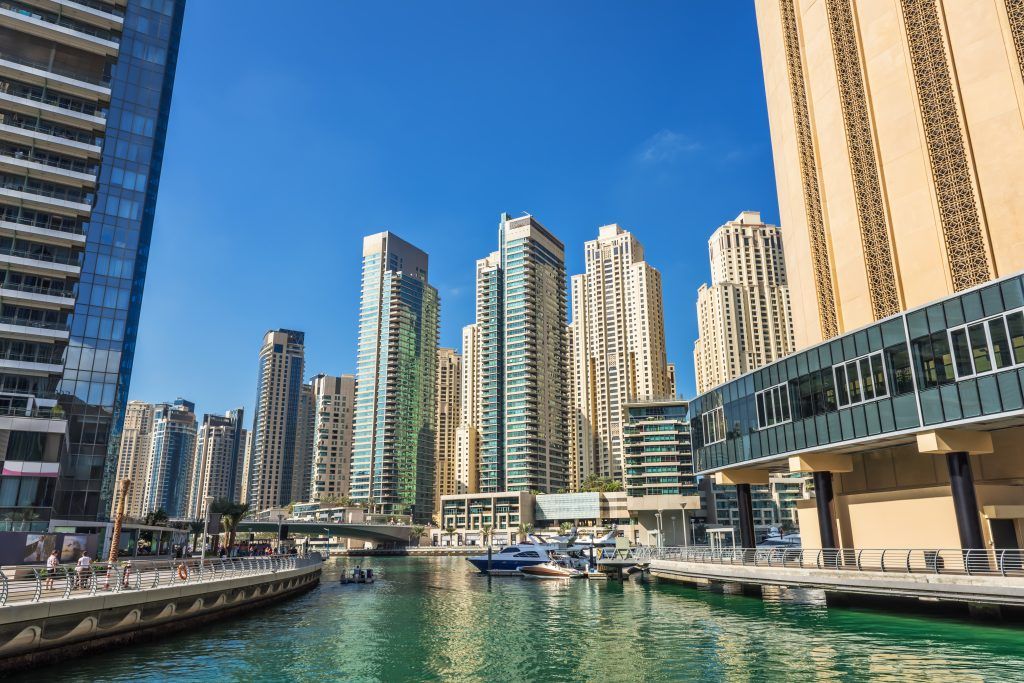
Usufruct and Musataha
It can be difficult to distinguish a lease from a Usufruct or Musataha, and the essence of the document will determine its direction not its form. The relevant authorities are likely to discuss longer-term agreements with development or sublease rights as real rights (to which foreign ownership restrictions may apply), rather than as leases.
<ul><li>Usufruct is a proprietary right in favor of the grant recipient to use and operate the property of another person, provided that the property remains in its original state.</li><li>Musataha is a type of usufruct that gives the grant recipient the right to build on someone else’s land.</li></ul>
In Dubai, both of these categories can belong to citizens of the Gulf States and companies registered in the UAE that are fully owned by them throughout the Emirate. In all cases, usufruct is limited to a maximum of 99 years, while musataha is limited to a maximum of 50 years.
Long-term lease
Generally speaking, in the UAE the lease rights are estimated more as an agreement between a landlord and tenant, rather than as legal rights. The exception is tenancy agreements for 10 years or more in Dubai, where each of the agreements is considered a legal right and can be registered.
Granted land
Land may also be granted by the ruler of the Emirate to citizens or companies owned by Emirati residents. The grant of such land may be revoked by the Ruler at any time, and it is subject to development obligations and restrictions on its use and disposal.
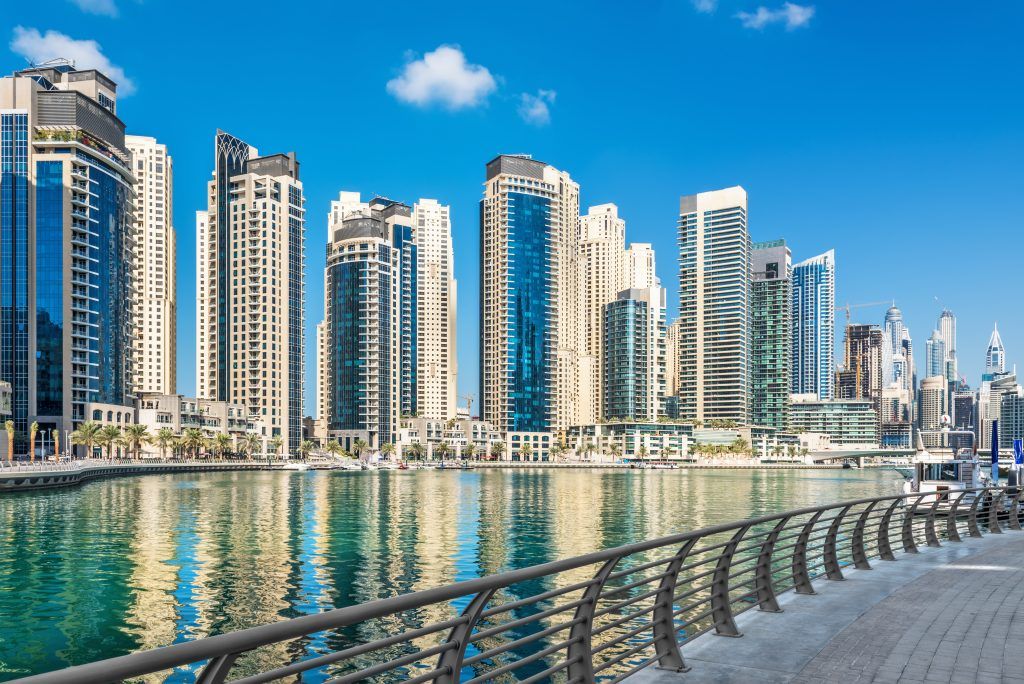
Laws governing registration the rights of ownership
The following Federal laws:
<ul><li>the UAE Civil Code</li><li>Federal law No. 18 of 1993 on commercial transactions.</li></ul>
Laws that related to the transfer of ownership rights:
<ul><li>Dubai Law No. 7 of 2013: About the land Department;</li><li>The UAE Executive Council resolution of the Emirates of Dubai No. 30 of 2013: Approval of land Department fees;</li><li>Dubai decree No. 4 of 2010 : Regulation of the granting of title to designated industrial and commercial land in the Emirate of Dubai;</li><li>Dubai law No. 13 of 2008 .: Regulation of the temporary property register in the Emirate of Dubai as amended by Dubai Law No. 9 of 2009 •</li><li>Dubai Law No. 27 of 2007: Ownership of co-owned real estate in the Emirate of Dubai; and</li><li>Dubai act No. 7 of 2006 .: About registration of real estate in the Emirate of Dubai.</li></ul>
The implementation of a legitimate and orderly transfer of ownership
According to the law, all real estate transactions must be registered in the “Temporary register” maintained by the Dubai Land Department. The absence of registration invalidates the relevant purchase, lease or pledge transactions (Article 3 (1) of Law No. 13 of 2008, Article 4 of Law No. 33 of 2008 and Article 7 of Law No. 14 of 2008). Therefore, a contract of sale, pledge or lease is only legally valid if it is registered. Registration of real estate in each Emirate has its own rules governing the transfer of ownership. In Dubai, to register the transfer of ownership, the buyer and seller must meet at the DLD office in person or online. The Dubai REST mobile app allows you to perform all types of real estate trading and transactions, as well as provide services such as Ejari registration, title verification, and even mortgage processing. It is worth noting that some free zones in Dubai maintain their own real estate register, but this does not eliminate the requirement to register a land transaction in DLD. To complete the property transfer process, you will need a no objection Certificate (NOC) from the developer in DLD. Once the NOC is ready, the buyer and seller can transfer the property and register it in the buyer’s name.
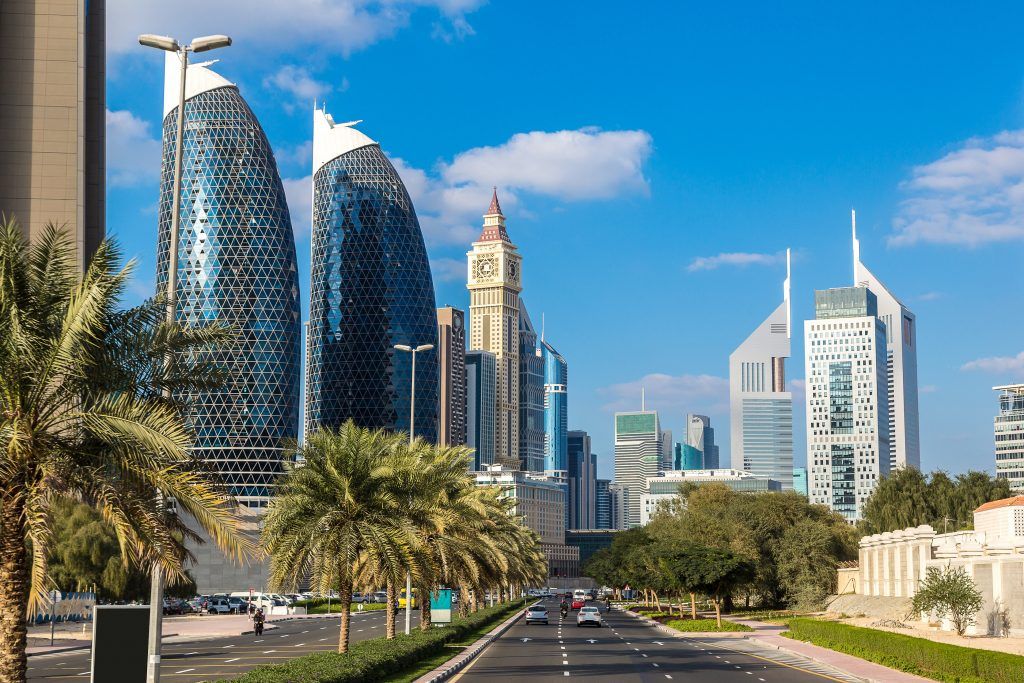
Off-plan sales
Laws and regulations in Dubai require that contracts for the sale of real estate under development (off-plan) be registered in a temporary register. In Dubai, this is called registration (Oqood). Temporary registration is an administrative measure only because it does not create any legal ownership rights (since the unit does not currently exist). Then a public search of the registry is performed. While all transfers must be registered in the real estate register in accordance with the law, the register is not available for public search. A certificate of ownership of real estate can only be obtained upon application from the owner or from a person who has a power of attorney from such owner. The representations and warranties contained in the sales contract are subject to agreement between the parties and may vary from contract to contract. The laws of Dubai basically do not say anything about the representations and warranties implied in the sale of property, except for the sale of objects under construction. According to Law No. 6 of 2019 on real estate regulation, a developer selling an off-plan property must eliminate any structural defects in the premises within 10 years from the date of issuing the completion certificate by the municipality and is responsible for hidden defects within a certain period (1 year from the date of transfer). This “ten-year responsibility” cannot be excluded. The law also specifies the procedure for the developer’s use of public areas. In particular, the fact that the developer does not have the right to sell a Parking space to the owner separately. Law No. 6 of 2019 applies to all real estate objects, including those located in free economic and special developing zones. It is also worth noting that when considering buying a property in Dubai, the investor should pay particular attention to the laws on planning, zoning, construction, environment, health and safety that may apply to the property, and get guarantees that all necessary permits were obtained before the building was built. Non-UAE citizens should check whether the property is located in an area where the buyer is legally allowed to own the interests they plan to buy. Dubai administrative Ordinance No. 125 of 2001 on the adoption of Building codes and standards provides for public and legal control over the technical aspects of a detailed project, as well as restrictions on aesthetic and heritage areas. The relevant mandatory provisions of the Civil code in the context of construction contracts include:
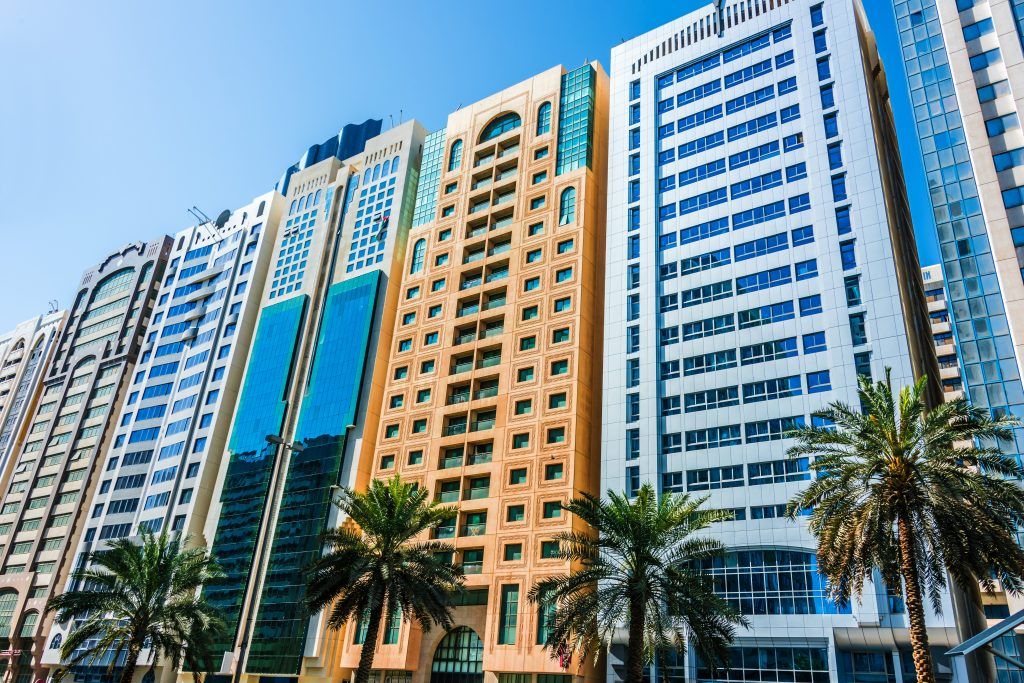
<ul><li><em>Article 248</em>, according to which the UAE courts may, at the request of a party, modify unfair contractual provisions or release a party from compliance with such provisions;</li><li><em>Article 383</em>, which provides that liability for fraud, intentional or gross error cannot be excluded;</li><li><em>Article 390</em>, which allows the UAE courts to adjust the award of compensation for damages owed to a party if the actual losses incurred differ from the amount of damages previously agreed in the contract;</li><li><em>Article 390</em> of the UAE Civil code provides that the parties can agree in advance the amount of damage, including for late transfer of the object.</li></ul>
Estate financing
Security for real estate and property interests (such as usufruct or musataha) can be obtained through a mortgage registered with the relevant land Department. Some Emirates (and free zones) have special laws regarding mortgages, but in the absence of legislation, mortgages are usually regulated by the UAE Civil code. Although the practices of the respective registrars may differ, in General, a real estate mortgage can only be granted in favor of a Bank licensed By the Central Bank of the UAE. The mortgage must also be translated into Arabic and notarized before it is registered, which can increase the time and cost of a real estate transaction.
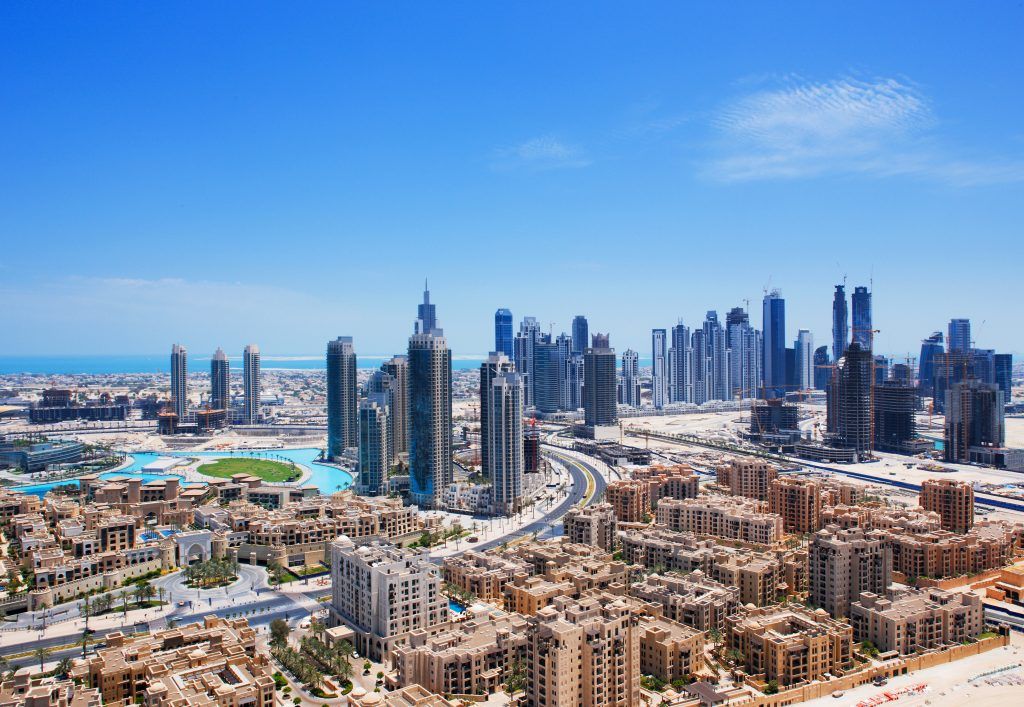
Formalities in case of bankruptcy of the loan debtor
In Dubai, the lender has the right to pay off the debt on the mortgaged property when the debt is due, provided that the mortgage has been registered in DLD. Failure to register a mortgage invalidates it in Accordance with law No. 14 of 2008 on mortgages in the Emirate of Dubai (the“mortgage Law”). The mortgage law establishes the procedure for enforcement of mortgage loans. In case of late payment by the loan debtor, the lender must notify the notary 30 days before the start of enforcement proceedings. If payment is not made within such a 30-day period, the Executive judge must, at the request of the lender, order a lien on the mortgaged property, allowing it to be sold at an open auction in accordance with the DLD auction rules. The enforcement judge may decide to postpone a sale at an open auction for up to 60 days (such a delay can only be made once) if he finds that the loan debtor will be able to repay the debt during this time.
Consequences of the loan debtor’s bankruptcy
The relevant provisions concerning the security interests of the lender in the event of the loan debtor’s insolvency are contained in Federal decree law No. 9 of 2016. The bankruptcy law provides that a Declaration of insolvency will not result in the termination of contracts that are binding on both parties, unless the services are “personal” in nature. It is possible to challenge certain types of” preferential ” contracts that are concluded during the required period (i.e., the date from which the court considers the termination of payments to have occurred, and this date should not be more than 2 years before the bankruptcy Declaration). But it is generally considered that such a problem is much more difficult if the transaction is a genuine commercial transaction between the parties on terms that serve as protection for the application for cancellation of the transaction. However, the consent of the court will be required before any action can be taken to ensure such security.
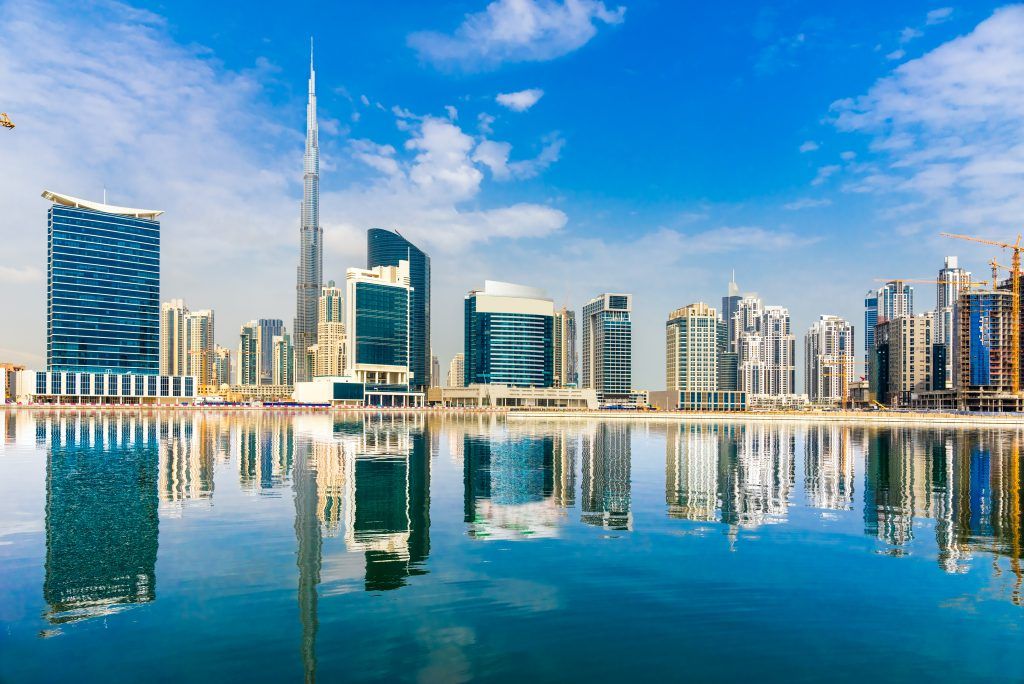
Dubai’s basic property laws
Buyers and investors around the world are very interested in buying real estate in Dubai and to be sure of the security of the transaction, you need to know and understand the basic laws of Dubai on property.
Law No. 85 of 2006 Regulating the Real Estate Brokers Register in the Emirate of Dubai
Law No. 85 of 2006 applies to all companies and real estate agents that are engaged in the purchase and sale of real estate registered in DLD. It implies that all interested agents are required to apply for registration In the register of brokers in DLD, as well as comply with the”code of ethics”. The real estate agent must be appointed by his client in writing, and the contract itself must be registered with the Land Department. Violations of the brokers Act or the code of ethics may subsequently result in suspension for a period of half a year, blacklisting by DLD, or revocation of the realtor’s license.
Law No. 7 of 2006 Concerning Real Property Registration in the Emirate of Dubai
This Law regulates the registration of real estate and property rights in the Emirate of Dubai, regardless of whether they are businesses or individuals, and reduces restrictions for foreigners related to the ownership of real estate in Dubai. In accordance with the laws of the UAE about the property, formerly the foreigner was not allowed to own land and building properties in Dubai. According to article 4, citizens of the UAE and the Gulf States, as well as companies wholly owned by them, can buy real estate anywhere within Dubai. Persons who are not citizens of the United Arab Emirates and the Gulf States may have the right to an unconditional title, lease for a period of 10 to 99 years only in certain areas of Dubai, which are listed in Regulation 3/2006 (as amended by Regulation 1/2010), or in the free zones of the UAE. Article 3 of Decree No. 3 of 2006 “on the definition of territories belonging to non-citizens” for real estate in the Emirate of Dubai (pages 129-132) specifies land plots classified as unconditional property.
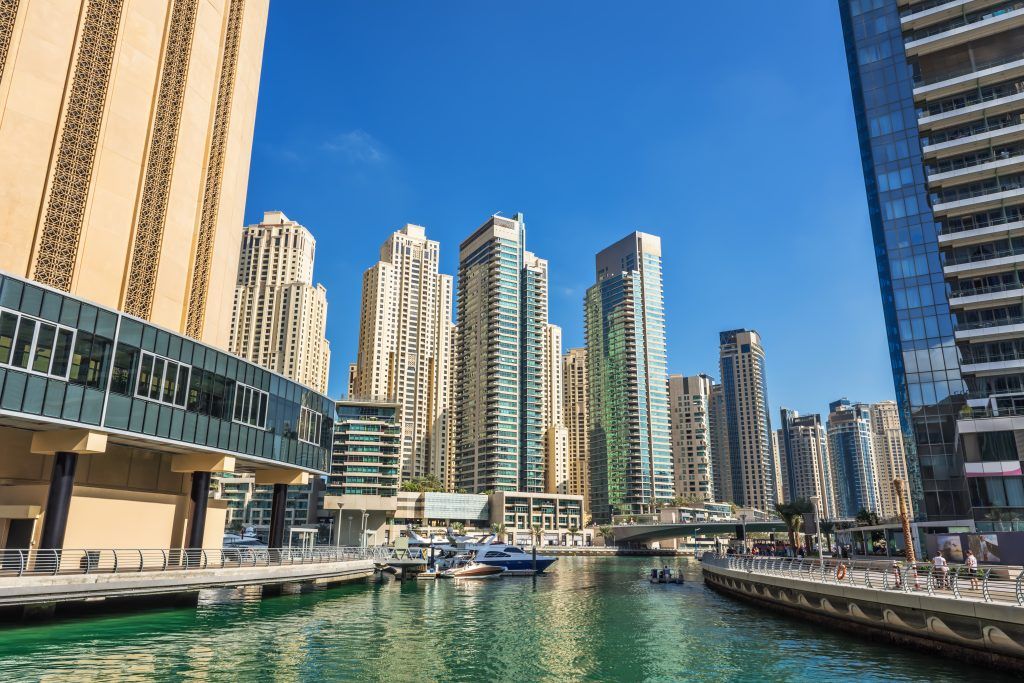
Law No. 8 of 2007 Concerning Escrow Accounts for Real Estate Development in the Emirate of Dubai
The main purpose of Law No. 8 of 2007 is to provide legal protection for buyers in off-plan transactions and is aimed at introducing a registration regime. The provisions of this law apply to a developer who sells construction-in-progress items in development projects and receives payments from buyers or financiers. All off-plan real estate transactions, namely the sale by the developer or owner of the property before completion, are common in Dubai. Such transactions provide for the date of completion of construction and transfer, and the buyer is required to make an installment payment to the developer. If the developer does not complete the construction of the object on time or is unable to transfer ownership to the buyer for any reason, the buyer will be considered an unsecured creditor of the developer and risks losing the money already invested. Legislative confirmation of this can be found in articles 9 and 10 of Law No. 7 of 2006 on the registration of real estate in Dubai. Therefore, the law on escrow, introduced in 2007, also became an effective protection for investors. According to this law, all money collected by the developer from homeowners and project financiers is credited to this account, after which the funds can only be used for the construction of the object.
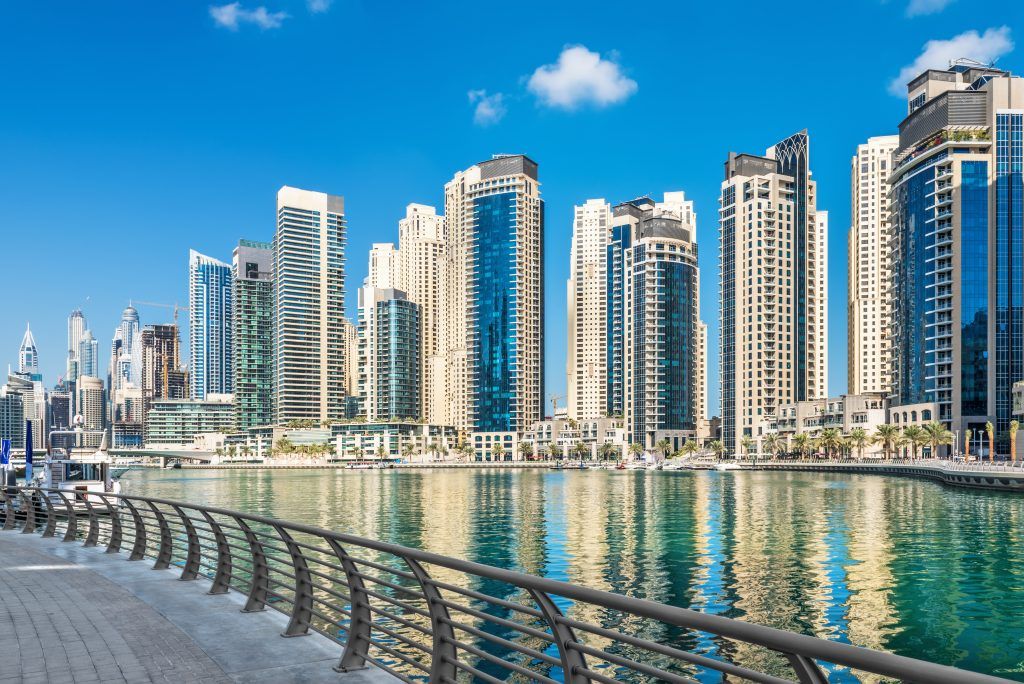
Law No. 9 of 2009 Amending Law No. (13) of 2008 Regulating the Interim Property Register in the Emirate of Dubai
First of all, the real estate registry act was adopted to monitor and assist existing practices regarding property registration for UAE citizens, as well as to further clarify and confirm the actual status of GCC citizens in relation to their rights to own real estate in Dubai. You can use it to select development projects that may be owned by foreign buyers. Well, in fact, to provide a regime in which individuals can be provided with confirmation of their rights to purchase and own real estate in Dubai, as well as a guarantee of ownership of real estate registered on them. Law No. 9 of 2009 came into force to amend certain provisions of Law No. 13 of 2008, which regulates the temporary real estate registry in the Emirate of Dubai. Dubai’s real estate registration legislation provides for the following:
<ul><li>All transactions with projects under construction and with properties under construction must be registered in the” real estate Register ” maintained by DLD.</li><li>Article 7 of Law No. 15 of 2008 stipulates that all lease agreements must be registered with the “real estate registration Office”.</li><li>All real estate liens must be registered in the DLD (Article 7 of Law No. 14 of 2008).</li></ul>
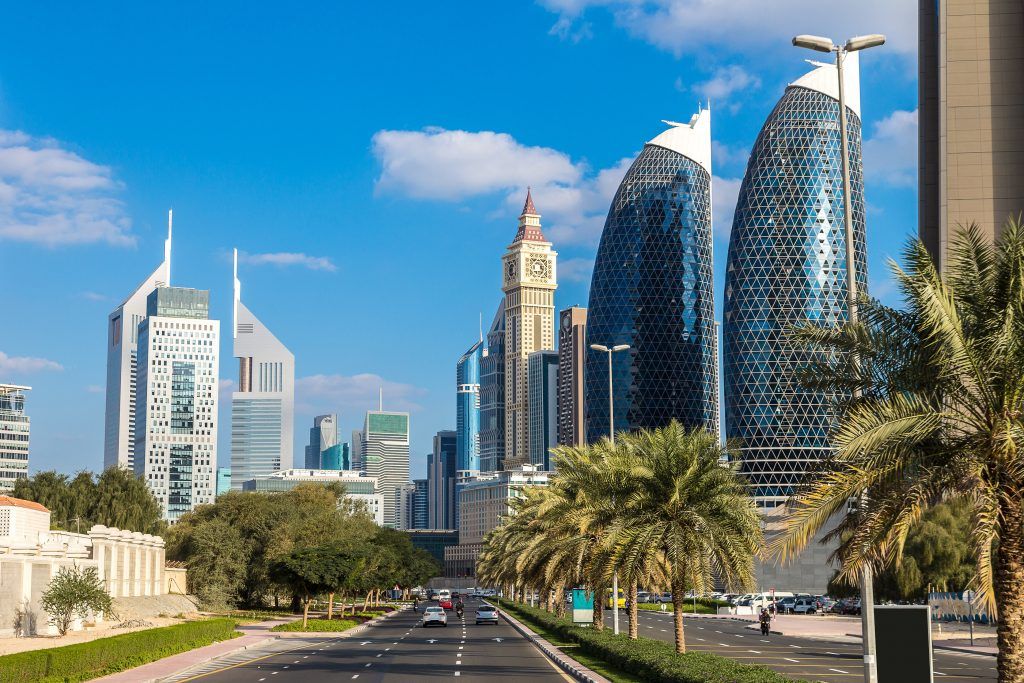
Law No. 14 of 2008 on mortgage
Financing your investment in Dubai real estate is one of the key elements. Most newcomers to the industry take out a mortgage to pay for their purchase, but some rules may be confusing at first. The main provisions of the law are as follows:
<ul><li>Article 7 on mortgage registration: A mortgage is invalid if it is not registered in the DLD, like any other agreement. In addition, the owner of the property bears the costs of the contract, unless otherwise agreed. The cost of registering a mortgage is a Commission of 0.25% of the loan amount plus AED 4,100.</li><li>Mortgage application procedure for RERA: describes all the details that must be accompanied with the mortgage application in order to be registered.</li><li>Articles 10-12 on the legal effect of a mortgage: they set out the rights and restrictions of both the mortgagor and the mortgagee during the mortgage period.</li></ul>
Decree No. 27 of 2007 Regarding Rentals in the Emirate of Dubai
Before signing a rental agreement in Dubai, it is important to read the rules of the RERA rental agreement. The real estate regulatory Agency (RERA) lease laws regulate the rights and obligations as well as the relationship between tenants and landlords in Dubai. When it comes to the RERA property rental law in Dubai, there are 4 main laws:
<ul><li>Law No. 26 of 2007-regulates the relationship between landlords and tenants in Dubai.</li><li>Law No. 33 of 2008-amended certain articles of Law No. 26 of 2007, and regulates landlord-tenant relations in Dubai.</li><li>Decree No. 26 of 2013-this law established the rental dispute resolution Center (RDSC), which handles all types of rental disputes in Dubai.</li><li>Decree No. 43 of 2013-regulates rent increases in Dubai.</li></ul>
The terms of the rental Law in Dubai:
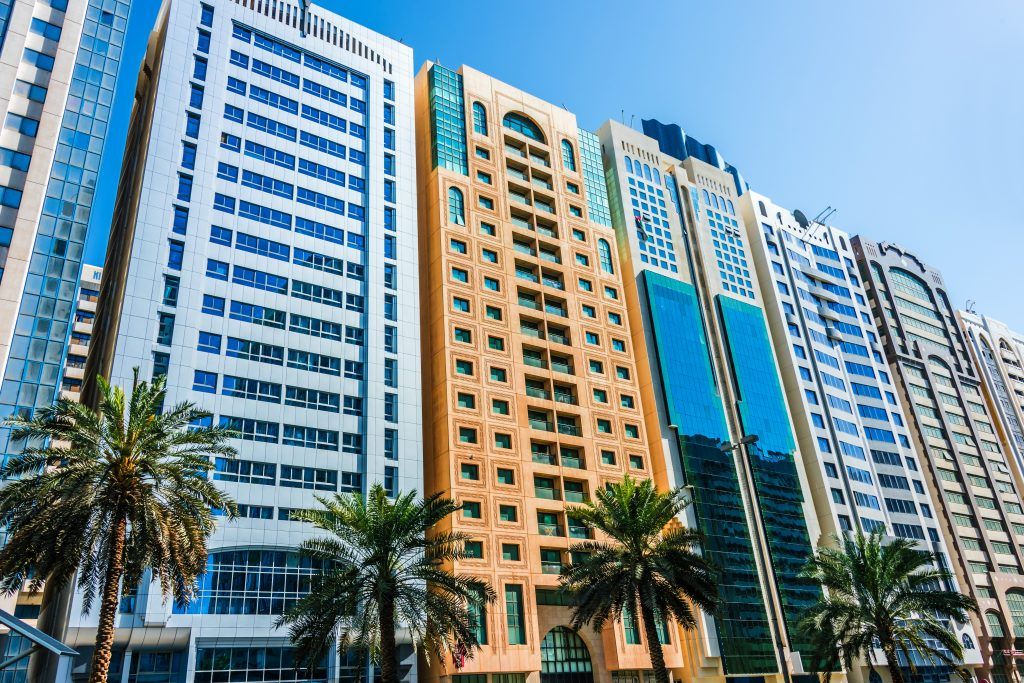
<ul><li>In accordance with article 4 of Law No. 33 of 2008, the lessee or landlord is required to register the lease agreement with the real estate regulatory Agency (RERA) through Ejari . This ensures that the property will not be rented out twice at the same time.</li><li>Article 6 of the lease Law No. 26 of 2007 States that if the lease agreement expires and the tenant continues to live in the property without objection from the landlord, the lease term will be automatically extended for the same period or for one year (whichever is less), under the same conditions.</li><li>According to article 28 of the Dubai real estate lease Act, the transfer of ownership of the property to a new owner will not affect the tenant’s right to occupy the property.</li></ul>
It is also worth noting that the amendments to the law on rent, further encouraged foreign buyers to invest in real estate to make a profit on the fact of rent. The new decree provides for a restriction on rent increases, depending on the price index in a particular area, which was set by RERA.
The law on hereditary property
This law is quite complex compared to other Dubai property laws. Inheritance issues in the United Arab Emirates (UAE) are regulated by Federal law No. 5 of 1985 on civil transactions in the UAE (Civil code) and Federal law No. 28 of 2005 on personal Affairs Law. As a rule, inheritance issues for Muslim citizens of the UAE are resolved in accordance with Sharia (the system of Islamic law based on the Koran), while for foreigners, the law of the country of origin of the deceased is applied. If the deceased asset owner is a member of another country, the UAE inheritance law also takes into account the law of the other country. If the homeowner has dual citizenship other than the UAE, it becomes more difficult to make a decision about hereditary owners. A valid will that meets all legal standards in the UAE and Dubai is required for the transfer of real estate to legitimate beneficiaries. In the absence of legal will, the decision on the division of property between recipients is made by the court of instances. UAE courts are looking for legal proof of ownership, so it is important to register ownership of the property with the local land Department. There is no equivalent to the concept of “inheritance rights ” in other jurisdictions (for example, when property passes from a deceased co-owner to a remaining co-owner). In the UAE, co-owners own equal shares in the property, unless otherwise specified.
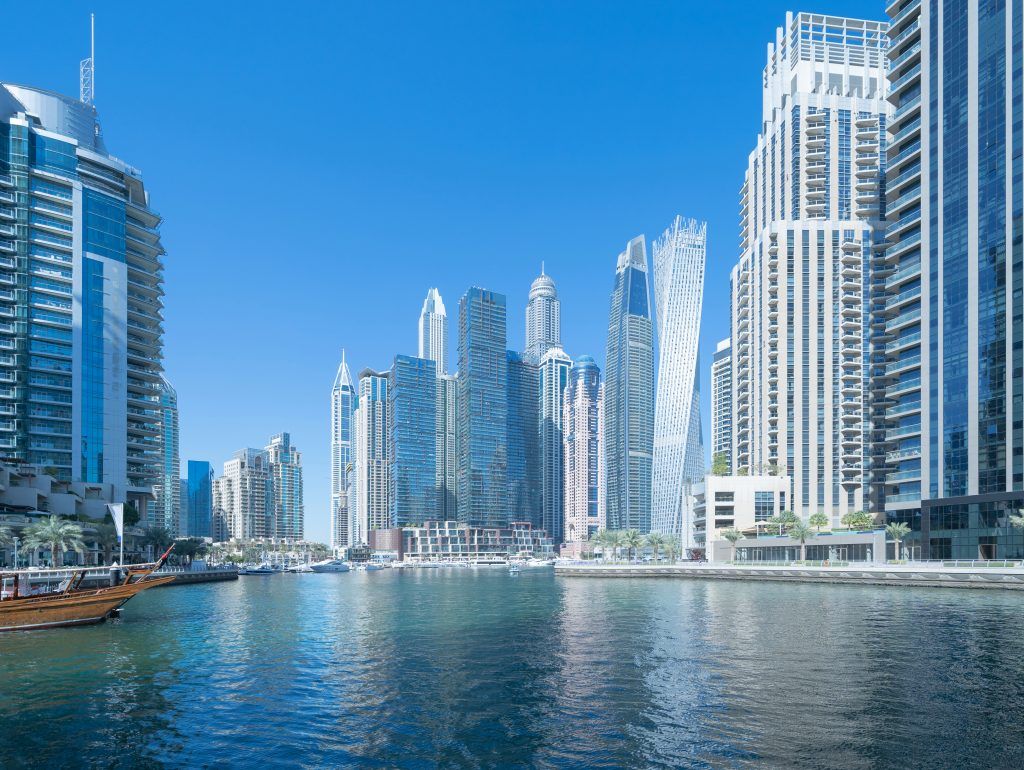
Conclusion
<ul><li>Foreign investors can be sure that all stages of the acquisition process are legally approved stages and the transaction is safe.</li><li>Dubai property laws are very important for local and foreign buyers and investors.</li><li>Despite who is going to sell, buy or lease any property, this person must comply with all of the above property laws in Dubai. This will help you make full use of your assets in Dubai.</li></ul>


